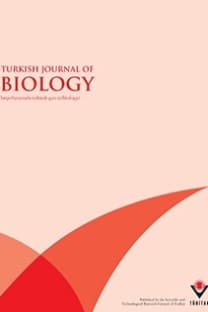Exogenously sourced γ-irradiated chitosan-mediated regulation of growth, physiology, quality attributes and yield in Mentha piperita L.
In view of the increasing demand for essential oils from medicinal and aromatic plants, the application of irradiated polysaccharides like chitosan is a promising option. A pot experiment was performed to study the influence of various concentrations of irradiated chitosan (ICN) on growth, physiological, and yield parameters of Mentha piperita L., a plant with considerable pharmaceutical importance. The treatments were foliar spray of deionized water only (control), foliar spray of unirradiated chitosan (40 mg L-1), and ICN at 40, 80, 120, and 160 mg L-1. Among these, 80 mg L-1 ICN (treatment 4) proved to be the best for most of the parameters studied. This treatment increased the fresh and dry weights of the plant by 65.3% and 62.7%, respectively. Furthermore, 80 mg L-1 ICN also showed an increase of 22.6% and 19.7% in carbonic anhydrase and nitrate reductase activity, respectively, while chlorophyll fluorescence was increased by 16.3% compared to the control. Leaf nitrogen content showed an enrichment of 18.2% whereas phosphorus and potassium contents increased by 10.1% and 7.9%, respectively, exceeding the control. Total phenol content exhibited an increment of 18.1%. Treatment 4 (80 mg L-1 ICN) improved essential oil content and yield by 36.8% and 126.1%, respectively, at 150 days after planting (DAP). Gas chromatography revealed that menthol content increased by 14.8%; however, menthone and menthyl-acetate contents with 80 mg L-1 ICN decreased by 2.5% and 4.8%, respectively, at 150 DAP.
Keywords:
Irradiated chitosan, Mentha piperita L., chlorophyll fluorescence, essential oil, gas chromatography, menthol,
- ISSN: 1300-0152
- Yayın Aralığı: Yılda 6 Sayı
- Yayıncı: TÜBİTAK
Sayıdaki Diğer Makaleler
M. Masroor A. KHAN, Bilal AHMAD, Hassan JALEEL, Yawar SADIQ, Asfia SHABBIR, Moin UDDIN
BILAL AHMAD, MOHAMMAD MASROOR AKHTAR KHAN, HASSAN JALEEL, YAWAR SADIQ, ASFIA SHABBIR, MOIN UDDIN
Mohammad Reza ABDOLLAHI, Zahra Chardoli ESHAGHI, Mohammad MAJDI
Rafael BRAVO, Americo CHINI, Lierni UGARTEMENDIA, Lourdes FRANCO, Mónica MESA, Ana B. RODRIGUEZ, Javier CUBERO, Carmen BARRIGA
Orkun PİNAR, Candan TAMERLER, Ayten KARATAŞ YAZGAN
Filippos BANTIS, Kalliopi RADOGLOU
Aslıhan KIZILDOĞAN KURT, Gülay ÖZCENGİZ, Alper MUTLU, Güliz JACCARD VANLI, İbrahim SERTDEMİR
Aylin Şendemir ÜRKMEZ, Ece BAYIR, Eyüp BİLGİ, Mehmet Özgün ÖZEN
